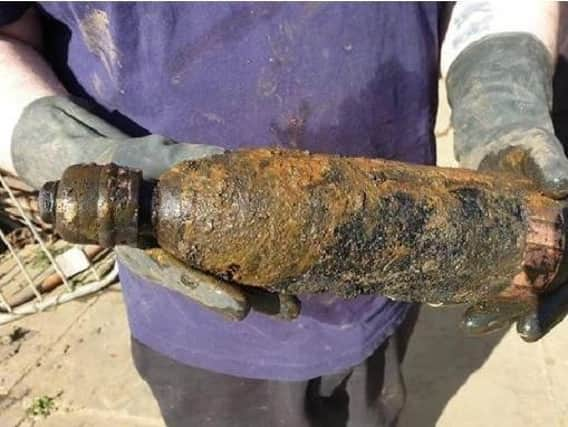This is how the Boer War mortar bomb found in the River Aire could have ended up in Leeds


Dave Pearce and Ian Platt, from Roundhay, dredged up the 18lb explosive while using a magnet to trawl the riverbed near Crown Point Bridge. It was later identified as dating from the Boer War - a turn-of-the-century Victorian conflict that was not fought on British soil.
The Anglo-Boer War was contested in South Africa between British forces and local Boer colonialists, who were mostly of Dutch descent, between 1899 and 1902 - raising questions around how the mortar bomb found its way into the river in central Leeds, thousands of miles from the battlefields. The Boer states - the Transvaal and Orange Free State - objected to British influence and desired independence.
So, just how did the mortar shell arrive in Leeds?
A soldier's souvenir?
Advertisement
Hide AdAdvertisement
Hide AdLeeds did send men to assist the professional army in South Africa. The Leeds Rifles, a volunteer force formed in 1860, were deployed and two companies of reservist soldiers served in the Boer War. The conflict was actually the Leeds Rifles' first battle honour. The Rifles at the time were based at Carlton Barracks near Meanwood, and had a strong association with the Tetley brewery - many workers at the factory volunteered. The ordnance found in the Aire could have been taken back to England as a keepsake by a local man who had seen service in South Africa.
Locally manufactured?
It's well-known that during later conflicts such as World War One, many of Leeds' factories were turned over to armaments production. Yet during peacetime, there were also local metal workshops that specialised in manufacturing weaponry and ordnance. One of these was Greenwood and Batley, who were based at Albion Works on Armley Road. The company specialised in military products in its early years, and became an engineering giant of the city. Bullets and other ammunition were among the arms sent for use in South Africa, and were stamped with the GB mark. It's possible that a stray Leeds-made shell found its way into the river before it could be shipped overseas.
The firm supplied armaments to the Confederate army during the American Civil War and later made World War One tanks. Albion Works was mothballed in 1987.
The finders
“It just felt average size,” Dave said. “We didn’t realise it was until we posted it online. We thought it could be something innocent like a gas canister or something.”
Advertisement
Hide AdAdvertisement
Hide AdHis friend Ian Platt said: “We posted the photos online and within two minutes he got a reply saying it’s probably a mortar bomb - get out of there."
The pair also dredged up a goblet engraved with Nazi swastika symbols.
The bomb was taken to East End Park by disposal experts for a controlled explosion to be carried out.